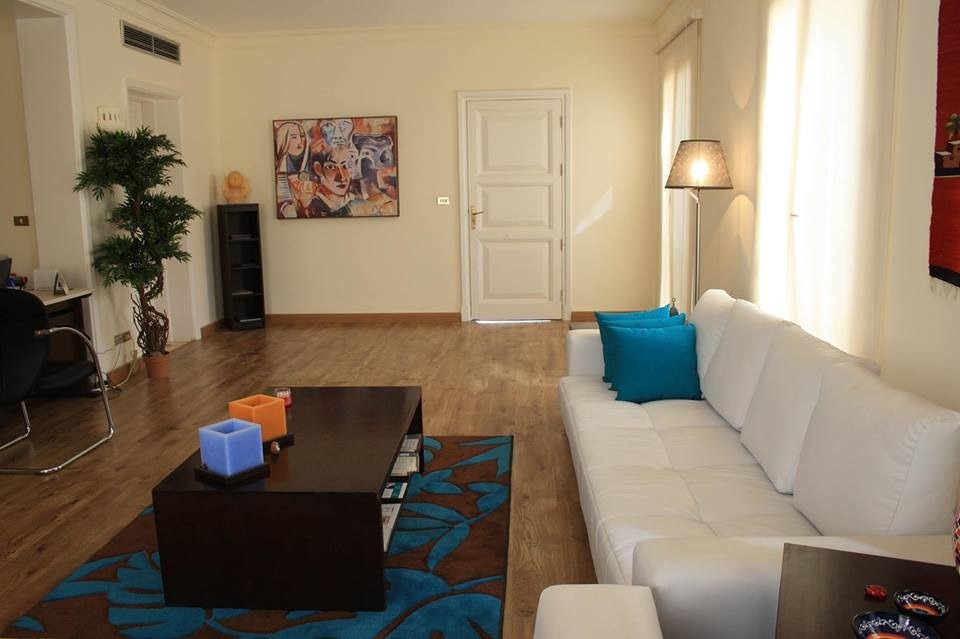
 A recent World Happiness Report has ranked Egyptians as amongst the most depressed in the world, yet the mental health scene in this country is virtually non-existent. With only about five counseling centers in the capital and an abiding social stigma about psychotherapy, most other places around the country offer no mental health services at all.
A recent World Happiness Report has ranked Egyptians as amongst the most depressed in the world, yet the mental health scene in this country is virtually non-existent. With only about five counseling centers in the capital and an abiding social stigma about psychotherapy, most other places around the country offer no mental health services at all.
This was the case in El Gouna, with its population of approximately 20,000 permanent residents, until therapist Neveen Hashem opened the Insight Centre. We caught up with Neveen to discuss Egypt’s aversion to therapy, the benefits of holistic counseling and its different forms.
What are the different types of therapy?
People seek therapy for a wide variety of reasons, from coping with major life challenges or childhood trauma, to dealing with depression or anxiety, to simply desiring personal growth and greater self-knowledge. A client and therapist may work together for as few as five or six sessions or as long as several years, depending on the client’s unique needs and personal goals for therapy.
There’s Integrative Therapy, Cognitive Behavioral Therapy, Brief (Solution Focused) Psychotherapy, Systemic Psychotherapy, Family Therapy, Existential Psychotherapy, Dance and Movement Therapy and Art Therapy – just to name a few.
Which ones do you specialize in?
I am an Integrative Psychotherapist; The term “integrative” has a number of meanings. It refers to the process of integrating the personality: taking disowned, unaware, or unresolved aspects of the self and making them part of a cohesive personality, reducing the use of defense mechanisms that inhibit flexibility in problem solving and relating to people.
It also refers to the integration of different therapeutic approaches together that may include psychodynamic, person-centred, behavioural, cognitive, family therapy, and gestalt therapy. Integrative psychotherapy synthesizes these theories together to form one comprehensive model for practice where each provides a partial explanation of behaviour and each is enhanced when selectively integrated with other aspects of the therapist’s approach.
 Tell us more about Insight Centre and the services it offers.
Tell us more about Insight Centre and the services it offers.
Insight Counseling and Integrative Health located in El Gouna, Red Sea, Egypt, offers counseling, psychotherapy and life coaching to a wide range of clients at all ages, addressing trauma issues, depression and anxiety, substance abuse, and/or any number of other life issues.
Since our team of qualified psychotherapists, psychiatrists and mental health professionals believe that the mind and body are inseparable, we adopt a holistic approach incorporating body, mind and spirit, therefore, we also offer alternative therapy services like Meditation, Yoga, Hypnotherapy, Individual Healing Sessions, in addition to Homeopathy.
What is your history in the field, and what the most interesting experience you have had?
I have acquired my Master’s degree in Integrative Psychotherapy from the University of Derby, UK and my Bachelor’s degree in Psychology from the American University in Cairo (AUC). I have been training and working in the field of counseling and psychotherapy since 2002, both in Egypt and the UK in both inpatient and outpatient settings. I work with anger management, anxiety, bereavement, depression, and trauma, in addition to substance abuse. I am also a member of the British Association for Counseling and Psychotherapy (BACP)
I believe working in this filed has been an interesting journey all along; getting exposed to real life experiences on a daily basis has added to both my personal and professional growth, as challenging as it might be at times.
What led you to starting your business in El Gouna?
I have always wanted to live somewhere by the beach, especially in a region like the Red Sea where no counseling services are offered to such a huge population.
After spending three years in London, EL Gouna, to me, is what I believe has the best of both worlds.
How do you feel you have changed as a person since moving to the beach?
Well, certainly being away from traffic and pollution helps anyone lead a better life. I wouldn’t say living here is stress free, but then again just waking up in the morning and looking at this amazing scenery would literally help anyone unwind and relax. I have become much calmer and grounded; Maybe “slower” is the right word here and it certainly helps me connect better with myself.
Being here also allows me to do things I never got the chance to do in Cairo, which could be as simple as sitting and reading a book. Having the chance to head to the beach, for example, on my break from work is what I really call a blessing.
I also believe that El Gouna has great potential to become one of the world’s healing destinations, which is why I am currently working on offering a new program called “Therapy Week” at Insight, where people come to El Gouna for seven days and get different kinds of therapy, instead of traveling to Europe or the states for example.
What are your thoughts on online therapy? Do you practice it?
Online counseling is becoming very common. I use online therapy with clients who have already started their therapeutic process at our facility but are either away on holidays and need to continue with their therapy or with those living in between El Gouna and somewhere else.
How do you feel about how therapy is handled and perceived in Egypt, from the perspective of a client and as a practitioner?
As a practitioner, I believe this field has come a long way from when I first started work back in 2002. There was only one psychology department in one of the private mental health hospitals in Cairo and it wasn’t really acknowledged.
Our society is becoming much more accepting to the concept of counseling and psychotherapy; I would say it is much less “stigmatic” than it used to be and we now have at least five if not more well-known and well-established counseling facilities all over Cairo.
Based on the feedback I get from most clients, they seem to be very comfortable with the idea of seeing a therapist, both socially and in their work environment.
What do you think are the benefits of alternative therapy over standard practices?
I believe they go hand in hand, which is why I chose to implement both counseling and alternative therapy services at Insight. This holistic approach does help a lot of people get their needs met, as one can’t really separate the mind from the body, or the soul. They are all one and they all affect one another. Many of my clients practice meditation, for example, in parallel with the work we do together.
Do therapists usually resort to therapy as well? And how do you keep sane?
Well, it is a requirement for therapists to have gone to therapy themselves before starting their career. Initially, it helps the therapists identify and work through their own difficulties/issues before proceeding on helping others; secondly, as a practitioner, it helped a lot knowing how it feels like to be “on the other side of the table”, being a client and learning how it feels like to be sitting in a room with a therapist I don’t really know and talking my heart out.
Regarding keeping “sane”, well two things help: Learning that at the end of each day, I don’t take my work home with me. I leave my office and everything stays there until I go back the next morning.
Secondly, each therapist has a supervisor, who is a senior therapist who makes sure that the ethical framework is followed with each client and who also offers guidance and support when their clients affect therapists.
WE SAID THIS: Check out Insight’s Facebook page here.


